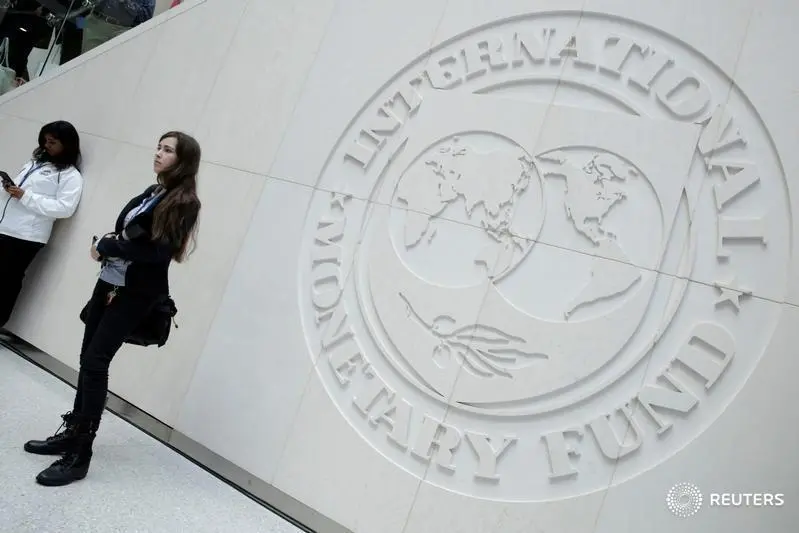PHOTO
The International Monetary Fund should in the coming days finalize the basis for a staff level agreement with Argentina over a review of the country's $44 billion loan with the IMF, the Washington-based fund said on Sunday.
"The teams of the Economy Ministry and Central Bank of Argentina and the IMF staff have finished the core aspects of the technical work of the next review," the IMF said on Twitter.
"The central objectives and parameters that will be the basis for a 'staff level agreement' have been agreed, which is expected to be finalized in the next few days before moving towards the review of the Argentina program," it added.
The South American country is set to unveil tax and currency measures that will in effect devalue the peso as part of the deal, according to a government official, while also introducing a new preferential exchange rate for agricultural exports and levies on imports.
Corn exporters will be able to sell their goods abroad at 340 pesos per U.S. dollar, the official added, a temporary rate to bolster exports until Aug. 31. That is 27% weaker than the current rate of 268 pesos per dollar.
The government will also introduce 7.5% tax on some goods imports and a 25% levy on imports of most services, with new FX rates at around 288 and 335 pesos per dollar, respectively.
Argentina faces maturities with the IMF worth some $3.4 billion between July and August, at a time when the central bank's net reserves are about $6.5 billion in the red.
Buenos Aires is hoping to alter the economic goals it had agreed with the fund and bring forward some IMF disbursements scheduled for this year as it battles a severe financial crisis which a lack of reserves could exacerbate.
An economy ministry source told Reuters the disbursement program for the second half of 2023 has been agreed and that the staff level agreement could be sealed on Wednesday or Thursday.
Economy Minister Sergio Massa said on Sunday that there is a "big package of disbursements" in August and November under the IMF program, without providing any further details during an interview on the C5N TV network.
Under the current program, the country is expected to get $4 billion in July, over $3.3 billion in September and another $3.3 billion in December. These disbursements are mainly used to repay a failed 2018 bailout.
Argentina, which is also struggling with high inflation and a significant fiscal deficit, has suffered a considerable hit to its foreign currency income due to a severe drought which crimped its principal source of exports, agriculture.
The IMF said the agreement seeks to consolidate "fiscal order and strengthen reserves," acknowledging the impact of the drought, as well as the damage to exports and tax revenues.
(Reporting by Hernan Nessi and Jorgelina do Rosario, Editing by Nick Zieminski, Kim Coghill and Jacqueline Wong)





















